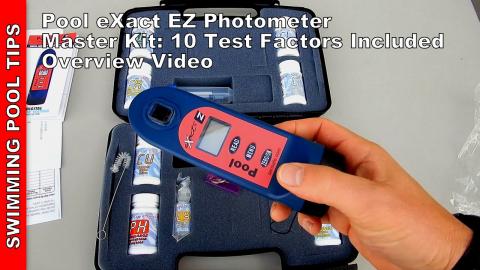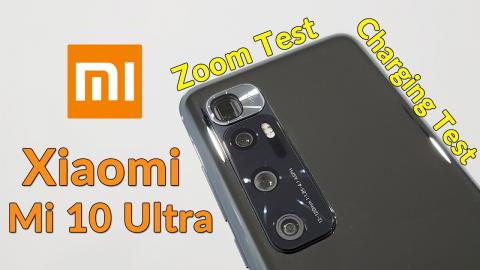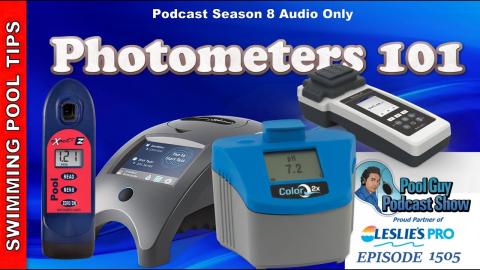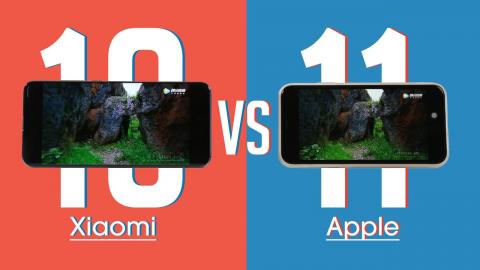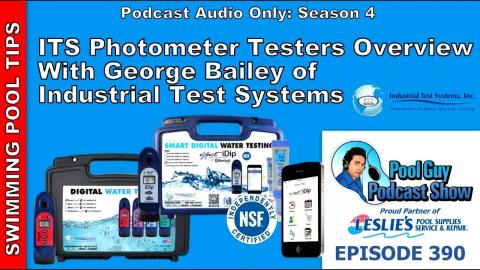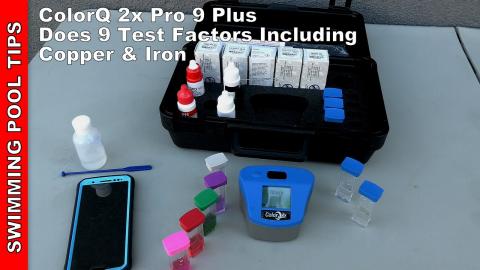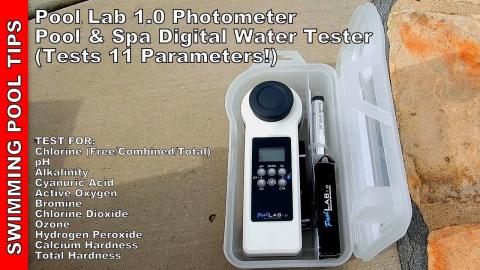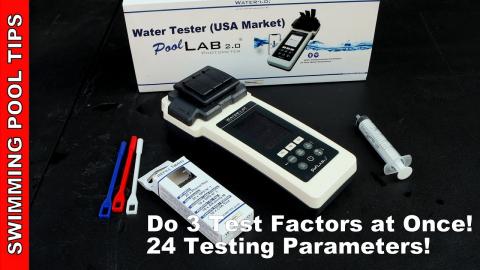Photometer VS Reagent Test Kit
Description
Photometer Vs. Reagent Tester
Photometers:
The photometer works by shining a specific wavelength of light through the colored water sample. The light source is typically an LED or laser that can emit light at the precise wavelength needed for the test. As the light passes through the sample, some of it is absorbed by the colored solution, while the rest passes through to a light sensor on the other side.
The most accurate and precise reading
Digital reading to decimal points
Can document the reading
Easy to use
It takes the guesswork out of testing
Does more test factors than reagent testing
NSF approved
User error
More time consuming
Tablets for certain reagents
Reagents are more expensive
The device is more expensive
Replacement cost
If you do Commercial Accounts – Photometer
Start-up - good
Reagent Testing:
Fast
Affordable
Easy to use
Some are NSF-approved
Affordable
Reagents are affordable
Readings are subjective
User error
Need aptitude to tell the color difference so not for color blindness 8% of men color blind to some level.
Limited test parameters
No digital printout for records
Reagent testers are more affordable and faster but lack the technology advantages of a photometer – accuracy and a digital reading that can be stored and shared.
The Reagent Test Kits use a drop test, and when the reagent solution is entered into the water sample, a color change occurs. Taylor is the leading manufacturer of these reagent test kits, and you can also purchase an essential Pool Master Kit at your local pool store. The reagents can test for important factors like Chlorine, Free Chlorine, Total Chlorine, Bromine, Alkalinity, pH, Calcium Hardness, and CYA (Conditioner). These kits are easy to use and a great way to test your pool and spa water each week. The Taylor K-2005 and K-2006 are popular test kits.
The drawback of the reagent test kit is user error. You will get a false reading if you don't add the correct number of drops. If the reagents are expired, you will also get an inaccurate reading. Like test strips, you match colors to get your reading, so if you need to improve at distinguishing colors, you will need help reading the correct results. But these are minor drawbacks, and as you gain experience with the Reagent Test Kits, you will get better at reading the right results. Some popular test kits are the Taylor K-2005 and K-2006, which I use on my pool route.
Photometer Testers are gaining popularity, and they are the only test kit that will give you a spot-on reading of the test factors. The LaMotte Color Q 2X Pro7 & 2X Pro9 is a trendy photometer test kit, and the new Pool Lab 2.0 is also a great test kit. These kits operate when an electronic photometer reads the color spectrum of the reagent or tablet in the water sample. Since the photometer can read the exact color of the water sample, it can give you an accurate digital reading of the test factor. If you are doing a pH test, for example, it will give you the pH down to the exact level, like 7.5. This can't be done with test strips or the reagent test kits. These are great for Commercial accounts or homeowners struggling with color matching.
The drawback of photometer testers is the price point. Since they are more advanced, the price point is typically 3-4 times that of a premium reagent test kit.
One of the most advanced photometer testers is the LaMotte Spin Touch Mobile, which tests ten factors in one minute! The price point is nearly $1,000, and each disk is $2.50. Still, it can do all of these tests in less than a minute and give you a digital readout of all of them: Free Chlorine (DPD) 0-15 ppm, Total Chlorine (DPD) 0-15 ppm, Bromine (DPD) 0-33 ppm, pH 6.3-8.6, Calcium Hardness 0-800 ppm, Total Alkalinity 0-250 ppm, Cyanuric Acid 5-150 ppm, Copper 0-3.0 ppm, Iron 0-3.0 ppm, Salt 0-6000 ppm, Phosphate 0-2000 ppb.
Visit my Website: http://www.swimmingpoollearning.com/
eBook: https://www.swimmingpoollearning.com/swimming-pool-care-ebook
YouTube Video Index: http://poolmandave.blogspot.com/2014/03/swimming-pool-tips-reviews-how-to-video.html – A list of all of my videos.
Blogger: http://poolmandave.blogspot.com/
Facebook: https://www.facebook.com/swimmingpoollearning/
https://poolguycoaching.com/Twitter: https://twitter.com/Mrdgvb1
Join me on Patreon: https://www.patreon.com/poolguycoaching
Podcast: http://www.buzzsprout.com/110832
Podcast Website: https://www.thepoolguypodcastshow.com/
Coaching Site: https://poolguycoaching.com/
Shop at Leslie's: Leslie’s Pool Supplies has been a do-it-yourselfer and pool trade professionals' trusted partner since 1963, providing quality products and services to make pool care easy and solutions and expertise to do it right. http://lesliespool.com/?utm_medium=referral&utm_source=spll&utm_campaign=spll
If you are not using pool service software Try Skimmer free for 30 days at https://www.getskimmer.com/poolguy
Skimmer, Everything you need to run your pool service business, all in one app


